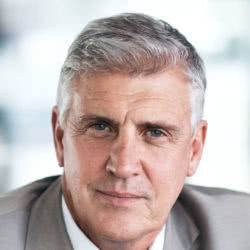Introduction: Pioneers of Dignity – The LGBTQ+ Journey of Resistance and Transformation
In the shadowed margins of historical narrative, the LGBTQ+ community has long wrestled with systemic marginalization, transforming collective pain into a profound movement of radical self-affirmation and social revolution. The story of LGBTQ+ pioneers is not merely a chronicle of individual struggles, but a complex tapestry of resilience, resistance, and unprecedented cultural metamorphosis.
Key Narrative Threads:
- The profound interconnection between personal courage and collective liberation
- Systematic challenges faced by LGBTQ+ individuals throughout historical periods
- The transformative power of visibility and authentic self-representation
- Pivotal moments that reshaped societal understanding of human dignity
From the clandestine gatherings in early urban enclaves to the thunderous protests that challenged institutional oppression, LGBTQ+ activists have continually reimagined the boundaries of social acceptance. This journey transcends mere political activism; it represents a fundamental reimagining of human rights, personal identity, and collective belonging.
The pioneers of the LGBTQ+ rights movement did not simply demand tolerance—they fundamentally challenged and reconstructed societal frameworks of gender, sexuality, and human expression. Their legacy is not just a story of survival, but a testament to the extraordinary capacity of marginalized communities to catalyze profound social transformation.
II. Early Activism and Resistance: Foundations of LGBTQ+ Liberation
The landscape of LGBTQ+ activism emerges from a profound crucible of resistance, where marginalized individuals transformed systemic oppression into a powerful movement of collective liberation. The narratives of early pioneers like Harvey Milk and Marsha P. Johnson represent more than individual stories—they embody a complex dialectic of social transformation and radical reimagining of human dignity.
Pioneering Figures: Architects of Resistance
Harvey Milk and Marsha P. Johnson emerged as emblematic figures who transcended mere activism, becoming revolutionary architects of social change. Milk, as the first openly gay elected official in California, strategically leveraged political representation to challenge heteronormative power structures. Johnson, a Black transgender woman, embodied intersectional resistance, her activism at the Stonewall Uprising representing a pivotal moment of collective rebellion against institutional marginalization.
Historical Context of Systemic Marginalization
The pre-Stonewall era was characterized by systematic disenfranchisement:
- Pervasive legal criminalization of homosexual relationships
- Institutional pathologization of LGBTQ+ identities
- Systematic employment and housing discrimination
- Violent social policing of gender and sexual expression
The Stonewall Uprising: A Transformative Moment
The 1969 Stonewall Uprising represented more than a singular event—it was a profound rupture in the social imaginary. Occurring at the Stonewall Inn in New York City’s Greenwich Village, this moment crystallized decades of suppressed resistance. Transgender women of color, drag performers, and marginalized community members collectively challenged police harassment, transforming individual trauma into a revolutionary collective action.
Strategies of Resistance and Community Building
Early LGBTQ+ activists developed multifaceted strategies of resistance:
- Creating underground social networks
- Developing alternative community support structures
- Organizing strategic public demonstrations
- Challenging medical and legal classifications
- Generating cultural visibility through art, literature, and performance
Theoretical Frameworks of Resistance
The activism of this period was not merely reactive but theoretically sophisticated. Activists understood that resistance required simultaneously challenging external oppressive structures and internal psychological narratives of shame and invisibility.
By redefining the boundaries of personal and political agency, these pioneers initiated a profound epistemological shift—transforming LGBTQ+ identity from a site of pathology to a dynamic, powerful space of self-determination and collective empowerment.
The legacy of these early activists extends far beyond historical documentation. They crafted a revolutionary paradigm of human rights that continues to challenge and expand our collective understanding of identity, freedom, and social justice.
III. Cultural Contributions and Impact: LGBTQ+ Creativity as Transformative Praxis
The cultural landscape of LGBTQ+ contributions represents a profound intellectual and artistic cartography—a dynamic terrain where marginalized narratives simultaneously deconstruct and reconstruct societal understanding of identity, representation, and human expression.
Arts and Literature: Reimagining Cultural Narratives
LGBTQ+ artists and writers have functioned not merely as cultural producers, but as epistemological revolutionaries, challenging dominant paradigms of representation and meaning-making. Figures like Oscar Wilde and James Baldwin transcended mere artistic production, instead crafting intricate critiques of social normativity through their work.
Oscar Wilde’s literary oeuvre represented a radical performance of aesthetic and sexual transgression. His writing simultaneously embodied and critiqued Victorian social constraints, using wit and linguistic sophistication as instruments of cultural subversion. Baldwin, conversely, explored intersectional dimensions of identity, interweaving race, sexuality, and social critique in works that demanded comprehensive reimagining of American social structures.
Theoretical Dimensions of Cultural Production
LGBTQ+ cultural contributions operate at multiple intellectual registers:
- Challenging heteronormative narrative structures
- Generating alternative epistemologies of desire and identity
- Creating representational spaces for marginalized experiences
- Developing linguistic and aesthetic strategies of resistance
Breaking Institutional Barriers: Pioneers Across Disciplines
Beyond artistic domains, LGBTQ+ individuals have made transformative contributions across scientific, technological, and political landscapes:
Scientific Innovations:
- Alan Turing’s foundational work in computer science
- Sally Ride’s astronomical achievements
- Ben Barres’ neurobiological research challenging gender assumptions
Technological Leadership:
- Lynn Conway’s revolutionary computer architecture designs
- Tim Cook’s technological leadership at Apple
- Early internet pioneers challenging technological gatekeeping
Political Transformation:
- Pioneering representation challenging institutional heteronormativity
- Legislative efforts expanding civil rights frameworks
- Global advocacy challenging systemic discrimination
Epistemological Significance
These contributions represent more than individual achievements. They constitute a comprehensive reimagining of institutional knowledge production, challenging fundamental assumptions about human potential, creativity, and social organization.
By persistently occupying spaces historically designed to exclude them, LGBTQ+ pioneers have not simply demanded entry—they have fundamentally reconstructed the conceptual architectures of these institutional domains.
The cultural impact transcends representation. These contributions represent a profound hermeneutic intervention: reinterpreting human potential through lenses of complexity, nuance, and radical inclusivity.
Their legacy is not merely historical documentation but a continuous, dynamic process of social transformation—an ongoing dialogue between marginalization and liberation, between enforced invisibility and radical self-determination.
IV. Political Milestones and Legal Victories: Reconstructing Legal and Political Landscapes
The trajectory of LGBTQ+ political and legal evolution represents a profound reconfiguration of institutional frameworks—a complex narrative of resistance, strategic mobilization, and transformative jurisprudence that fundamentally challenges systemic marginalization.
Landmark Legal Battles: Dismantling Systemic Oppression
The decriminalization of homosexuality and the legalization of same-sex marriage emerge not as singular events, but as intricate legal and social transformations challenging deeply entrenched normative structures. These victories represent more than legislative changes; they constitute fundamental reconstructions of citizenship, intimacy, and human rights.
Key Legal Metamorphoses:
- Gradual dismantling of criminalization statutes
- Judicial reinterpretations of constitutional protections
- Expanding conceptual frameworks of family and partnership
- Challenging systemic discrimination through strategic litigation
Political Representation: Reimagining Institutional Power
The emergence of openly LGBTQ+ politicians signifies a profound shift from marginalization to institutional transformation. These leaders do not merely occupy political spaces—they fundamentally reconfigure political discourse, challenging systemic heteronormative power structures.
Dimensions of Political Intervention:
- Intersectional policy-making
- Challenging institutional discrimination
- Generating comprehensive legislative protections
- Expanding representational frameworks
Global LGBTQ+ Rights Movement: Transnational Solidarity
The global LGBTQ+ rights movement transcends national boundaries, representing a complex network of transnational solidarity, strategic resistance, and collective reimagining of human rights.
International Mobilization Strategies:
- Collaborative legal advocacy
- Challenging cultural and religious normative frameworks
- Developing international human rights discourse
- Creating supportive transnational networks
Theoretical Implications
These political and legal transformations represent more than incremental progress. They constitute a fundamental epistemological intervention—challenging dominant paradigms of citizenship, identity, and social organization.
By persistently negotiating institutional boundaries, LGBTQ+ movements have not simply sought inclusion but have fundamentally reconstructed the conceptual architectures of rights, representation, and human dignity.
The ongoing struggle is not merely about legal recognition but about continuously expanding our collective understanding of human complexity, agency, and potential. Each legal victory, each political representation becomes a critical node in a broader narrative of social transformation—a dynamic, evolving dialogue between historical marginalization and radical reimagination.
V. Conclusion: Toward Continuous Liberation – Reflecting on LGBTQ+ Pioneering Legacy
The narrative of LGBTQ+ resistance is not a concluded historical account, but a dynamic, evolving tapestry of human resilience, collective transformation, and ongoing social reimagination. From marginalization to visibility, from systemic oppression to profound institutional reconfiguration, the journey of LGBTQ+ pioneers represents a complex dialectic of struggle and liberation.
Synthesizing Transformative Contributions
LGBTQ+ pioneers have fundamentally reshaped societal landscapes through multidimensional interventions:
- Challenging normative conceptualizations of identity
- Reconstructing institutional frameworks of rights and recognition
- Generating alternative epistemologies of human experience
- Creating revolutionary spaces of collective empowerment
Contemporary Challenges: The Ongoing Struggle
Despite significant progress, the journey toward full social and institutional equality remains incomplete. Contemporary challenges persist:
- Continued legal and social discrimination
- Intersectional vulnerabilities
- Global disparities in rights and recognition
- Persistent psychological and systemic marginalization
Theoretical and Practical Implications
The LGBTQ+ movement transcends individual rights—it represents a profound philosophical intervention into understanding human complexity, agency, and potential. Each act of resistance, each narrative of visibility becomes a critical node in a broader project of social transformation.
Call to Collective Action
Advancing LGBTQ+ equality requires multifaceted engagement:
- Continuous education and historical awareness
- Supporting grassroots and international advocacy organizations
- Challenging normative institutional structures
- Cultivating spaces of radical empathy and understanding
Looking Forward: A Horizon of Possibilities
The future of LGBTQ+ rights is not a predetermined trajectory but a continuous process of collective becoming. It demands ongoing commitment, critical reflection, and a willingness to imagine beyond current conceptual limitations.
By honoring the legacy of pioneers, supporting contemporary activists, and remaining committed to principles of radical inclusivity, we participate in an unfolding narrative of human liberation—a story that extends far beyond individual identities, toward a more comprehensive understanding of human dignity, complexity, and potential.

